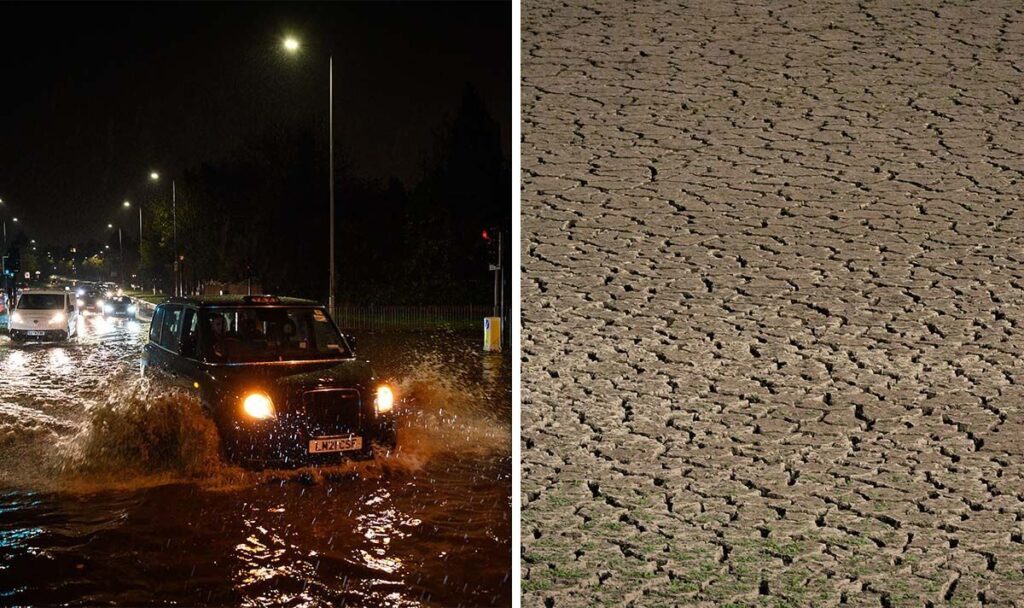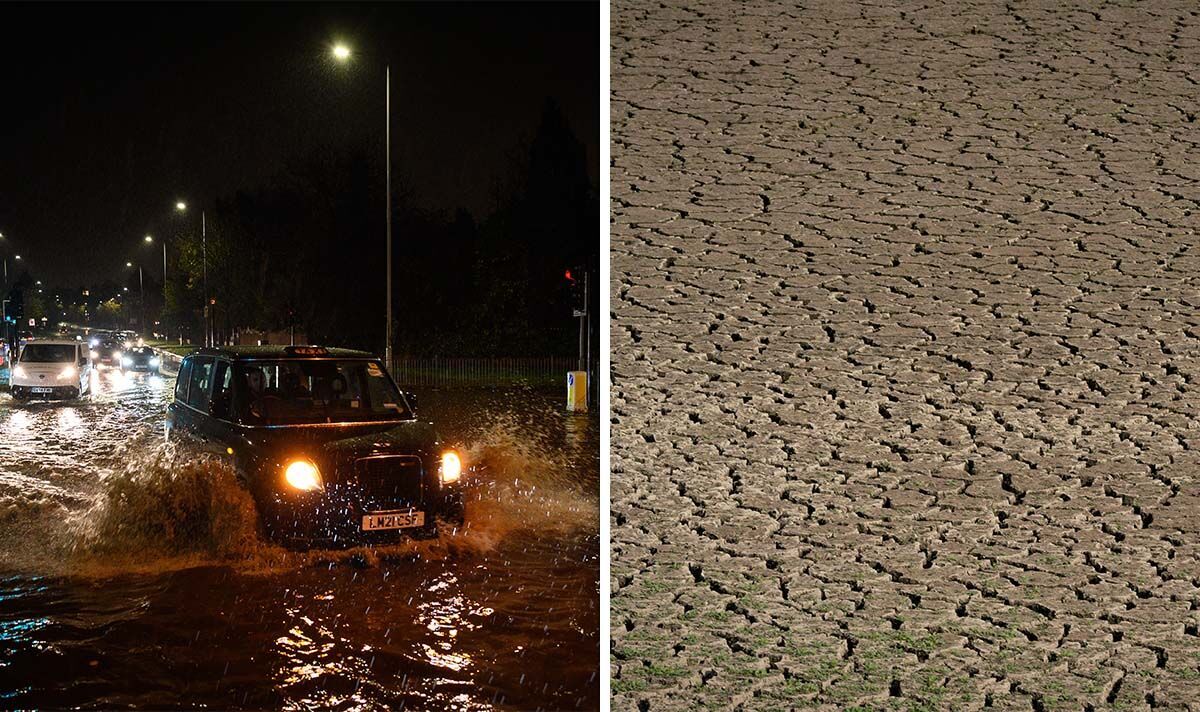

Parts of the UK are “left worse off than others” as the effects of climate change are made worse due to human activity, an expert has told Express.co.uk. Climate change, despite being a huge global issue, actually affects people differently – with factors including wealth and location being factored into the most vulnerable areas. The insight, offered by Renuka Thakore, a Lecturer and Researcher at the School of Justice at University of Central Lancashire, comes as world leaders flock to the United Nations summit on climate change, known as COP27. The event is being held in Sharm-el-Sheikh, Egypt, this year and continues to raise awareness of the threat the planet faces.
Speaking at the summit, UN secretary general Antonio Guterres that the world was “on a highway to climate hell with our foot on the accelerator”. Among those present at the event are vulnerable countries and particular island nations who have demanded that rich countries pay their fair share in helping them tackle the crisis.
Despite the fact that poorer countries have played the smallest role in worsening climate change, they are often hardest hit by its effects, like floods and droughts. While poorer nations face an existential threat due to a warming planet, experts have noted that Britons are not spared from the effects of climate change.
Speaking to Express.co.uk, Dr Thakore explained how much of it centres on where you live, as to how you are likely to be impacted by climate change differently.
There are a number of factors involved here, from income differences, whether you live in an urban or rural environment, or even depending on whether you live in the North or South of the UK.
Economical differences
Dr Thakore said: “Wealthier areas tend to use more energy, water and natural resources, as people generally spend more on products and services. This also comes with a greater responsibility to help contribute towards climate change targets.”
“Poorer areas may be disproportionately affected by climate change, as deprived areas are more likely to experience adverse impacts when there is flooding. As poorer areas may have less access to waste and water management services, they may struggle to cope with these impacts.
“Poorer households may also struggle with energy security, due to the lower chance of being able to maintain well-insulated housing in deprived areas.”
Meanwhile, wealthier households are better able to protect themselves from soaring bills by installing insulation and heat pumps.
READ MORE: UK joins ‘significant’ new energy alliance in move to ‘cut bills’
Urban and rural areas
“Rural areas are more likely to struggle with energy security and reducing their carbon emissions, as they may not be connected to the national grid of electricity, transport, and employment.
“People living in rural areas are the most vulnerable to climate change impacts such as storms, flooding, and severe heat, due to less access to infrastructure.”
“Urban areas are struggling with the impact of urban heat islands. The varied mix of people living in metropolitan areas means that it is difficult to find solutions to climate change impacts that work for everyone.”
Recent data has shown the heatwave that the UK in the summer smashed many previous records, with more than half of the UK’s oldest active weather stations recording their hottest day ever in 2022, according to Met Office data.
For the first time in history, temperatures in the UK passed 40C, something “virtually impossible” without human-induced climate change, according to the Met Office.
North and South
Dr Thakore said: “Extreme rainfall events in the North have led to soil erosion, saturation and crop damage, and these events are increasing in frequency and severity each time.
“While in the South, according to the Met Office, in the future extremely hot spells will occur sixteen times more frequently. There needs to be better understanding and knowledge of the ways that we can adapt to face climate challenges across the country.
“There is an urgent need to reduce carbon emissions, increase clean energy, and improve coastal defences. The best way forward is to work together with key stakeholders and leaders to implement change that will benefit everyone.”





More Stories
POLL: Would you install a hydrogen-ready boiler in your home?
Hearses line the streets of Beijing as China’s Covid crisis causes crematorium backlog
London Defender Person Of The Year Is Genius Inventor Andre Gray 2022